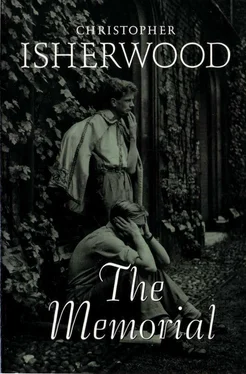Balefanio - tmp0
Здесь есть возможность читать онлайн «Balefanio - tmp0» весь текст электронной книги совершенно бесплатно (целиком полную версию без сокращений). В некоторых случаях можно слушать аудио, скачать через торрент в формате fb2 и присутствует краткое содержание. Жанр: Старинная литература, на английском языке. Описание произведения, (предисловие) а так же отзывы посетителей доступны на портале библиотеки ЛибКат.
- Название:tmp0
- Автор:
- Жанр:
- Год:неизвестен
- ISBN:нет данных
- Рейтинг книги:4 / 5. Голосов: 1
-
Избранное:Добавить в избранное
- Отзывы:
-
Ваша оценка:
- 80
- 1
- 2
- 3
- 4
- 5
tmp0: краткое содержание, описание и аннотация
Предлагаем к чтению аннотацию, описание, краткое содержание или предисловие (зависит от того, что написал сам автор книги «tmp0»). Если вы не нашли необходимую информацию о книге — напишите в комментариях, мы постараемся отыскать её.
tmp0 — читать онлайн бесплатно полную книгу (весь текст) целиком
Ниже представлен текст книги, разбитый по страницам. Система сохранения места последней прочитанной страницы, позволяет с удобством читать онлайн бесплатно книгу «tmp0», без необходимости каждый раз заново искать на чём Вы остановились. Поставьте закладку, и сможете в любой момент перейти на страницу, на которой закончили чтение.
Интервал:
Закладка:
None of the trees grew very high, because the park, although apparently so low-lying and even swampy, was on a higher level than the Cheshire
plain, and the wind blew across it from the sea: perfect hurricanes in winter and even today there was a little breeze. Papa had a story that, in the days when he still went for short walks, he had met an American sea-captain in the park. The sea-captain didn't seem to realise that he was trespassing. He came there, he said, every day to get the air. It smelt, he said, of ozone. The finest air in the Midlands. Some people have cheek. There was a little ash-tree, planted the year Eric was born; and there, a bit further along, was another, planted on their wedding-day. And deliberately, because it gave her pain to think about it, Lily tried to remember a day even earlier, the day she had first come to the Hall. That was in the spring. And closing her eyes, she managed, for an instant, to see the park and the house as they had looked to her then, so different, yet really just the same as now, except that there were flower-beds round the sundial and the sycamore hadn't been cut down in the corner of the garden. But she didn't want to think of anything but the differences.
That evening Lily had knelt down in her dressing-gown with her elbows on the dressing-table, to get the full light of the candles burning on either side of the mirror. Opening the silk blotting-book, she continued her letter to her aunt:
"The house itself is partly Elizabethan. ..."
She paused, looking at herself in the glass. Her eyes held tiny reflections of the candle-flames. They were brilliant with happiness. Her bright hair flowed over her shoulders, her cheeks were flushed. What a day! Her diary—which she would turn to next—allowed one page for each, and she had a childish fad of filling each one exactly by making her writing either bigger or smaller. This evening it would have to be very small indeed.
"The house itself is partly Elizabethan." Lily gazed into the mirror, into the shadows of the enormous solemn best bedroom, with high-backed cretonne chairs boldly patterned. A fire burning brightly—put in, she felt, more to make her feel cheerful than because the weather needed it—could not dispel those shadows, it only made them more grotesque. There was a woollen-worked firescreen, so charming and amusing, a real relic of the Early Victorians. And on the mantelpiece there were the most absurd little china lambs, with rough china fleeces, which you could use for striking matches on.
No, Lily couldn't feel that this room was really gloomy. She'd expected—but already she'd forgotten exactly what she had expected of the Hall. Richard sometimes talked about it as though it were a perfect dungeon. And yet he was really devoted to his home; nobody could be more so. Of course, thought Lily, nothing could have seemed anything but perfect to me —even if it hadn't been; and it is!
". . . but it has been refronted," she wrote, with sudden decision, "and the mullioned windows on the right side of the porch replaced by sash windows, about the time of Mr. Vernon's great-greatgrandfather."
Richard had been really amazed, and so pleased, when she'd asked his father about that, at dinner. Because, as he pointed out, she must have noticed it actually as they were driving in at the gates. They hadn't walked round outside at all yet.
"Lily notices everything," he had boasted, going on to tell them how she actually went into old churches — not during the service, of course— and took measurements with a tape measure, the length of the nave, breadth of the chancel, and so on, as well as making sketches of carvings and doorway ornaments, and put it all down in a book. "She ought to have been an architect," he went on, laughing, making Lily blush. But Mrs. Vernon had been so charming to her and so much interested, asking questions about St. Clement Danes and St. Mary-le-Strand. And then Mr. Vernon told her how some of the windows overlooking the stable-yard had been bricked up at the time of the Window Tax. Then he went on, speaking in his slow, rumbling voice, to tell a story about a Cavalier who had visited the house in the weeks before the outbreak of the Civil War to see his lady-love. The Vernons had stood for the Parliament. One night the lady-love's mother had discovered that the young Cavalier was carrying secret despatches; among them, her husband's death-warrant. When the Cavalier left the house next morning he was accompanied by a servant who was to show him the ford in the river. The servant, at his mistress's order, led the young man to a place where the current was strong and the water very deep. The Cavalier was drowned, and the girl, watching the scene from her window, was driven mad. "They say she haunts the wood behind the house. That's the reason it's called the Lady Wood," said Mr. Vernon, with his slow, very charming smile. During dinner he had drunk none of his wine. Now he picked up his glass of Chablis, his glass of port, his whisky and soda, his liqueur, gulping them down straight away, one after the other. At each gulp he blinked and smiled. And this, too, seemed charming and amusing to Lily. He was like a child taking medicine. And he was so kind.
But everybody had been kind. Kent, the coachman, had seemed to welcome her specially in the way he touched his cockaded hat, as she and Richard got into the carriage at Stockport Station. Stockport, Richard said, was a dirty old hole of a place, but she'd liked it as they rattled over the setts. Of course, it was different from the South; grey, smokier, barer than anything she'd seen in London—but she was determined to find some romance in it. And Mr Vernon had supplied that.
"They always say," he told her, "Stockport is like Rome—it's built on seven hills."
And then there was the long drive through muddy, twisting lanes, past straggling houses, across the high-arched bridge over a canal, grinding with the carriage-brake on down a steep little hill. Richard pointed out two or three neighbouring "places," standing in fields, among trees. The unfamiliar names thrilled her. He was holding her hand.
Mr. Vernon was standing in the porch as they drove up. He was not quite so tall as Lily remembered him—at her aunt's house in Kensington— but perhaps that was because the whole Vernon family were above the normal height. She kissed him, turning to the tall dark girl behind, who she knew, of course, must be Mary, and shook hands with her, conscious all the while of the hall beyond, with its flagstones, and the big porters' chairs by the fireplace and the old portraits against the panelling. Yes, Mary had Richard's eyes, they were beautiful, but she wasn't so good-looking. Lily liked her, loved her, instantly. She was shy, rather awkward. She seemed so big, to Lily. Ought she to have kissed Mary? They smiled. Lily had just that impression of those lovely eyes in the plain, rather pale face.
Mrs. Beddoes, the housekeeper, was introduced. And Mrs. Beddoes half-curtsied as she said:
"Welcome to the Hall, miss."
That was almost too exquisite for Lily. She nearly took Mrs. Beddoes in her arms. And actually she felt the tears in her eyes. They were all too kind. Mr. Vernon, tall, slow and stooping, with, his fair moustache and mild wrinkled eyes, saying: "I expect you'd like to see your room?" And Mary, moving ahead of her shyly, at the top of the wonderful carved staircase which was sloping sideways with age, opening the door: "I hope this will be all right."
"It's perfectly beautiful."
They paused, smiled enquiringly. Mary smiled quickly, oddly. She had a most attractive voice— rather husky and soft:
"I'm glad," she said. That was all. They were interrupted by the gardener's boy bringing up the luggage. Mrs. Beddoes came in to begin the unpacking. The whole house was in a bustle.
Читать дальшеИнтервал:
Закладка:
Похожие книги на «tmp0»
Представляем Вашему вниманию похожие книги на «tmp0» списком для выбора. Мы отобрали схожую по названию и смыслу литературу в надежде предоставить читателям больше вариантов отыскать новые, интересные, ещё непрочитанные произведения.
Обсуждение, отзывы о книге «tmp0» и просто собственные мнения читателей. Оставьте ваши комментарии, напишите, что Вы думаете о произведении, его смысле или главных героях. Укажите что конкретно понравилось, а что нет, и почему Вы так считаете.





